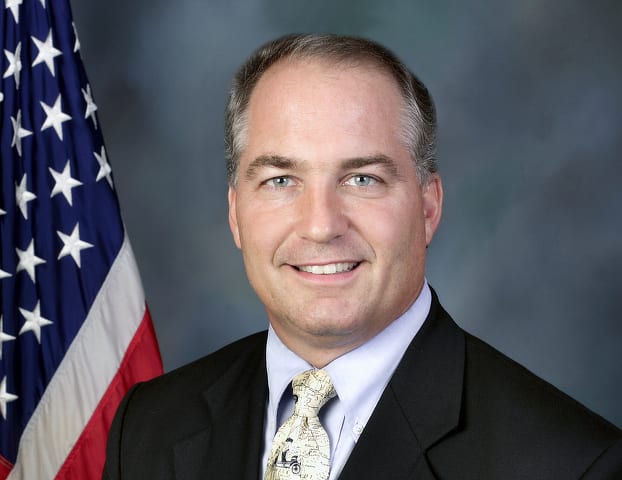Pennsylvania Gov. Tom Wolf offered his $32.4 billion state budget proposal on Feb. 7 during a speech highlighting aspects of his 2017-18 general fund spending plan and how he intends to pay for it.
The plan was generally well received by three Centre County legislators who spoke to The Gazette.
The third-year governor, a Democrat, asked for an increase in funding for schools and wants to continue to invest money into battling the state’s heroin and opioid epidemic. He also wants to grow the economy by creating more jobs while downsizing state government by folding four departments — Human Services, Drug and Alcohol, Health and Aging — into a single agency known as the Department of Health and Human Services.
The budget proposal also includes $1 billion in new taxes, including $500 million more that will be spent through the rest of this fiscal year.
The proposed budget would keep the state sales tax and the personal income tax flat, unlike his two previous budget proposals, where he sought higher taxes in both categories to support education and to fund property tax reductions.
During his address, he discussed the challenges of tackling a budget with a projected $3 billion deficit. He said his spending plan identifies $2 billion in savings in state government and anticipates new revenues.
State Rep. Rich Irvin, R-Spruce Creek Township, applauded Wolf’s budget address.
“I was pleased this was the first time in his three budget addresses that he did not propose broad-based tax increases,” said Irvin. “This is a good start, in my opinion, to enter into budget negotiations with an open mind as to how to reduce or manage existing state expenditures.”
Rep. Kerry Benninghoff, R-Bellefonte, said he is “encouraged” to see some of the cost-saving measures in the governor’s budget. He also made reference to Wolf’s largest proposed tax increase in state history of two years ago.
“While the governor moved closer to reality from where he started two years ago, those I represent know there is still much more that can be done to reduce spending and to prevent the need for tax increases on working Pennsylvanians,” Benninghoff said.
Irvin said he does have reservations about some of Wolf’s proposals.
“I do have some concerns,” he said, “such as a proposed severance tax on an already dwindling natural gas industry as a means to raise revenue, but I am choosing to remain open minded in taking a look at the governor’s proposals.”
Both Irvin and Benninghoff agreed with Wolf’s idea on downsizing Pennsylvania’s government.
“Year after year, budget discussions result in a bigger, more expensive state government that goes well beyond what the core functions of government should be,” said Benninghoff. “That costly status quo just cannot continue. We must seize this opportunity to take a fresh look at how Harrisburg operates. Our goal should be growing Pennsylvania’s prosperity, not its government.”
Irvin said he looks forward to the proposals of combining state agencies to save on state spending.
“I am optimistic the governor is seeking to merge various state departments and agencies to reduce costs and eliminate redundancies,” said Irvin. “This is something I look forward to exploring in more detail once I have the opportunity to review the governor’s entire budget proposal.”
State Rep. Scott Conklin, D-Rush Township, championed Wolf’s proposals for a heavier focus on education spending.
“I am pleased that Gov. Wolf and I share the same focus on education,” said Conklin. “From making sure students get a healthy breakfast to start their day, to recognizing the need to keep our colleges and universities at the front of education, this is an ambitious plan to invest in education. We need to fund education in a comprehensive manner by investing at the pre-K level all the way through to job training and workforce development.”
The recent proposal was just the start of the budget process.
“In the months ahead, the House will be engaging in budget hearings, at which time we will be able to ask questions of some of the pertinent state agencies and departments to get more details about their budgets and listen to their ideas on how best to manage state expenditures,” said Irvin.
Benninghoff called on his colleagues “from both sides of the aisle” to look hard at where the state can tighten its belt and where it can eliminate wasteful and unnecessary spending.
“I look forward to working toward a responsible state budget that right-sizes government, provides high-quality educational opportunities and encourages job growth and a health economy,” he said.
Conklin said he is ready to get to work.
“The budget address is the beginning,” he said. “It’s the blueprint of the state’s checkbook. The governor has laid his foundation and the focus will now shift to the House and Senate to lay the groundwork to strike the appropriate balance.”



